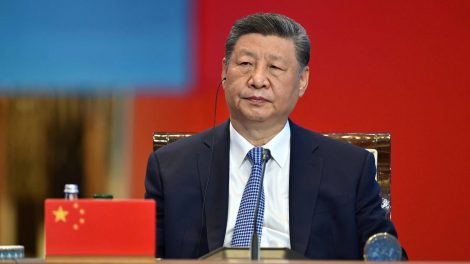CNN obtained images of a structure in central Belarus that could become a detention center for political dissidents. The compound is located a few dozen kilometers south of Minsk, in Novokolosovo, in the middle of the Belarusian forest. Three electrified fences, security cameras everywhere, “no entry” signs, grates tinted windows. The locals refer to it as “the Camp.”
According to the available information (which is also witness-based), the Camp is a redevelopment of a Soviet-era missile plant less than an hour away from the capital, where Aleksander Lukashenko’s cadres could bring opponents – such as the thousands arrested during the protests that followed the last elections, after which the batka clung to power.
Belarusian political activists have been raising the alarm about this risk for some time: if space runs out in the prisons where all sorts of demonstrators have been held up to now, then the regime could resort to building arbitrary detention camps.
In summer of 2020, unrest broke out after the opposition reported electoral fraud. Summer 2021 could also prove a hot season in Minsk. August 9 will mark the anniversary of the protests, demonstrators are organising, and it is no coincidence that international attention is growing. That is also linked to the constitutional referendum, theoretically scheduled for the end of the year, potentially another protest-inducing event.
Belarusian dynamics have been beneath the bright lights of media organisations, governments and politicians around the world, partly because the US and EU use them to recount the strength of democracies. An issue concerning Minsk as well as Moscow, the batka’s only ally.
“After a year of torture and marches, brutality and hope, the issue of democracy in Minsk today is at the top of the international rights agenda and beyond […] albeit with a variable geometry of interest that unfortunately does not see Italy excel in initiative and awareness,” wrote the Democratic MP Filippo Sensi, who’s always attentive about certain issues and how the European Union should pay attention to them.
The truth in Mr Sensi’s words materialises in the warm welcome the US reserved to Sviatlana Tsykhanovskaya. The leader of the political opposition in Minsk met with President Joe Biden and several other members of the current administration. This degree of attention suggests that the information released on CNN may not entirely be a coincidence.
“It’s not surprising that [President Lukashenka] is trying to build something like a regular prison camp, because a new wave of protests will [show] up anyway. It [may] be triggered by his statements, it [may] be triggered by the economic situation. But it will come. He understands [this], and he also wants to be more prepared than last year,” said Franak Viacorka, senior adviser to Ms Tsykhanovskaya, to the American network.
After all, in October 2020 a group of activists and former security agents (ByPol) released a stolen recording in which Deputy Minister of the Interior Mikalay Karpyankou spoke of the need to create structures where to “reform” opponents (Minsk later branded that soundbite “fake news”).
The information regarding the Camp follows Minsk’s ulterior tightening of its control over the very few independent media. Other recent developments include the story of Olympian Kristina Timanovskaya – who was held in Japan for criticising her federation and suffered an attempted kidnapping similar to that of dissident journalist Roman Protasevich – and the suspicious suicide of activist Vitaly Shishov (found hanged in a park in Kiev, but with abrasion marks on his body).
Meanwhile, Lithuania has been sounding the alarm: the authoritarian Belarusian leader is actively encouraging migrants from Iraq, Syria and African countries to arrive in his country and then cross the border into the EU. Iraqi Airways announced on Wednesday, August 4, that all its flights to Minsk will be canceled between August 5 and 15.
That news, released by the Iraqi media, could mean that EU efforts to convince Baghdad of the veracity of these dynamics have been heeded by the Iraqi government. Of the approximately 4,000 migrants who arrived in Lithuania in 2021, nearly 2,800 came from Iraq; 270 new Iraqi migrants registered from Vilnius over the last weekend, more than three times the total of last year.
According to Lithuanian Foreign Minister Gabrielius Landsbergis, Lukashenko is using “a hybrid weapon, a political weapon” against his country as a way to attack those who raise attention on what the batka is doing at home. Lithuania is also considered a rival by Belarus for its role in building an outpost of Western democratic values and visions in the region.



